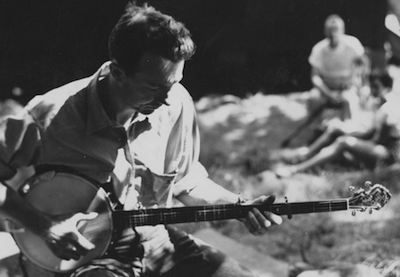In 1939, a group of idealists inspired by the spirit of New Deal reform put their vision of American democracy into practice by creating Camp Woodland, a racially and ethnically inclusive summer camp for city kids located in the remote and scenic mountains of upstate New York. The camp’s innovative programs profoundly influenced campers for 24 summers from 1939 through 1962.
Unlike some experimental communities that isolate themselves and withdraw into a world of their own, Camp Woodland by design sought to have its diverse population of campers and staff (most from the New York City metropolitan area) become part of the rural, traditional community in which they lived. It was able to earn the acceptance and respect of its neighbors through a program of honoring and preserving the community’s music, folklore and history. Local musicians, storytellers and artisans participated along with Woodlanders in musical and dramatic performances that celebrated the rich cultural resources of the region. Camp Woodland quickly became a center (and later, a model) for the preservation of local traditions that attracted musicologists and musicians, including Pete Seeger, who supported and participated in its programs.

